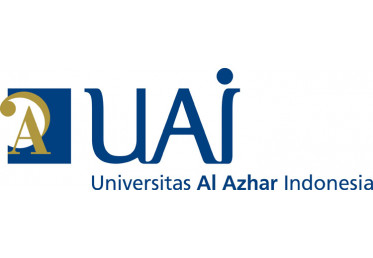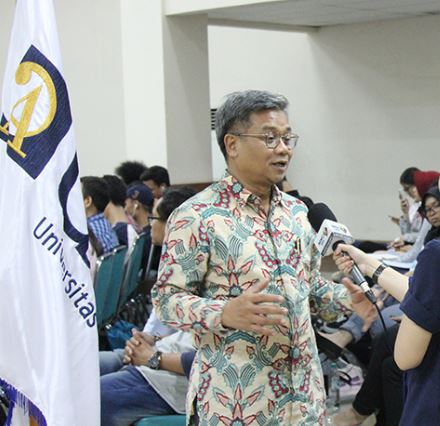JAKARTA, NETRALNEWS.COM – Lately we often hear various disruptions (destruction) of large companies that are not able to change the paradigm with the implementation of technology.
With the speed of digital technology that does not know the time and space it is certainly very different from the condition of the past, which was relatively small amount but quite explicit.
Currently, the fast update of traffic transformation, transactions, various applications in the very large numbers has spawned the phenomenon of big data.
This great data should also be part of the paradigm of thinking and acting. Because the characteristics of the volume, size, model of circulation and recording are different from the small data type.
When this big data phenomenon is approached with a small data paradigm, it would be difficult for us to survive. It will surely be crushed by the vast speed of data flow equipped with digital technology. This is where the disruption phenomenon occurs, many companies would fall.
The incidents of the falling institutions is not only in business and economic. But it also undermines non-profit institutions that are average, including the Higher Education. Civitas academica who are used by the glory of the past culture would also have difficulties to follow these tremendous changes.
Supposedly, scientists on campus understand that this change must naturally happen. Thomas Kuhn (1963, 1972) ever reminded the existence of normal sciences and scientific revolution. He proposes the concept, that its base lies in the paradigm, the mindset. It is how do we perceive and anticipate the change.
Maybe it changes so fast that it is difficult to anticipate, especially when we still use the old concept. Undoubtedly the managers of the campus will be overwhelmed.
In Kuhn’s terms, this disruption state is an anomaly before the formation of normal structure, or normal science with a solid concept. But it keeps changing, sooner or later.
The prediction of big data, digitization, and disruption is prepared by curriculum strengthening on the one hand, as well as learning models on the other in international campuses (for example, in the USA). Some campuses have programs that are relevant to the needs of the times, such as large data analysis for Master’s degree, or more broadly about data science
Students are introduced to real cases that must be approached, analyzed, and predicted using sophisticated methods of mixed sciences. By tool, the role of mathematics, statistics, and computing has become the “staple food” of the students, whichever the course of study.
For delivery model learning, it is not based on conventional approach that is transactional based on physical presence marked by absenteeism. Such practices will undoubtedly disrupt the speed of thinking of students who are generally born in the technological era.
Of course the conventional pattern of face-to-face, for certain things are still needed. But it must be in the context of humanity related to aspects of motivation, inspiration, dialogue, exchange of ideas, writing analysis that requires different opinions. Thus, universities can actually do mixed models in learning (hybrid learning).
So, the disruptive phenomenon that erodes the economy is actually due to our own unpreparedness. Included in terms of regulation. Eventually, disruption turns into something uneasy like a tangled threads is difficult to decompose. At the same time, the intellectual groups on campus still holds the old books because they are not exposed through frontier and contemporary research.
It is understandable that President Jokowi is overwhelmed when facing the fact that in Indonesia there are still many regulations that is complicated. In these circumstances, universities rarely come out with new breakthroughs that could be accompanied by the power of methodological reasoning.
Those matters do not mean we lack of smart people, but we are just less systematic and less prepared to anticipate the situation. The dominance of bureaucracy becomes very thick. The intellectuals and bureaucrats are subject to rheumatic paradigm attacks that make the mind stiff and enjoy being in the comfort zone.
In conclusion, to anticipate the disruption, empower educational institutions with new learning models, be open to change, mobilize students and lecturers to various countries, provide real time discussion materials involving the private sector, practitioners and industry.
Campus should not be too restrained. As well, in the government sector; loosen the regulations, bureaucracy, and do not have meetings with the superiors too often. Believe that Indonesia can face changes.
Written by Rector of Universitas Al Azhar Indonesia, Prof. Dr. Ir. Asep Saefuddin, M.Sc
Read the original Bahasa version from netralnews.com
(Translated by Dhea Fadhilah)

